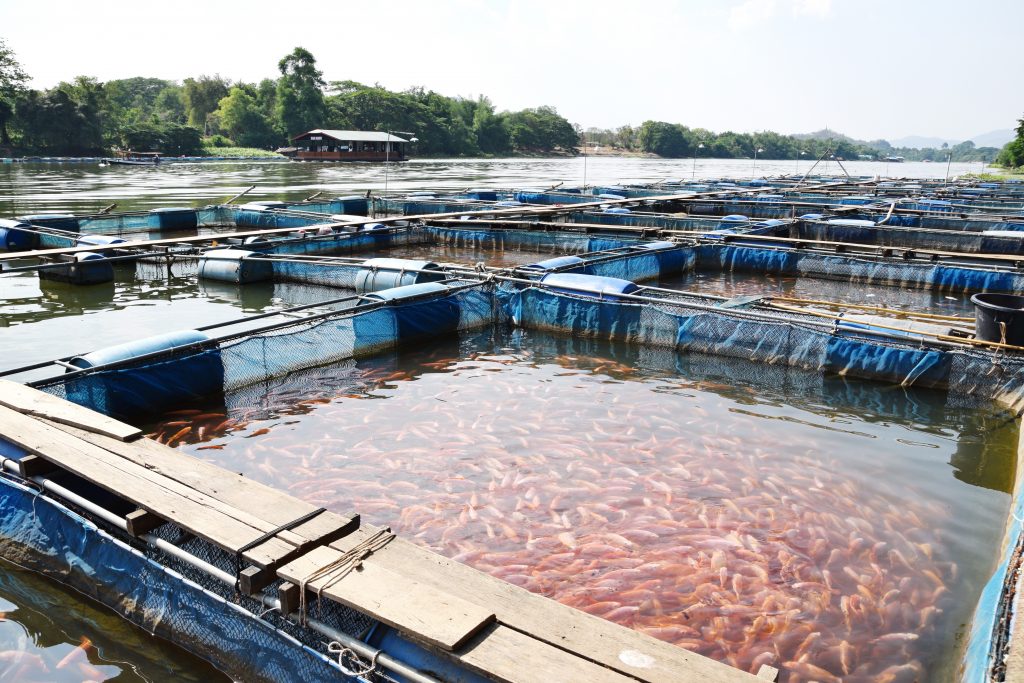Consumer awareness of possible environmental impacts of seafood production has been growing over the last two decades, particularly in Europe and North America. With 33.1% of global stocks fished at unsustainable levels, farmed fish is generally considered a sustainable alternative to wild-caught product. Nonetheless, aquaculture has demonstrated to have detrimental effects on aquatic ecosystems when it is not conducted in a responsible way. As a result, a myriad of initiatives has thrived to promote sustainable farming practices and to help consumers make a sustainable choice while shopping at the fishmonger.
Some of these initiatives have developed certification programmes based on standards for responsible aquaculture practices, rewarding those companies fulfilling all environmental and social requirements through an ecolabel that certifies the sustainable origin of a seafood product.
Tilapia farming has received a lot of attention from aquaculture standards. In fact, tilapia is a rustic species with fast growth and low trophic level. Feed is generally crop-based, with only a very low amount of fishmeal, making tilapia industry less dependent of capture fisheries than many other farming activities. In many countries of the world tilapia farming industry is made up of many small family-owned farms, with limited consumption of natural resources and ecosystem impact.
Today, 8% of the global certified aquaculture production is represented by tilapia species. Major international sustainability standards for tilapia industry are the Aquaculture Stewardship Council (ASC) and The Global Aquaculture Alliance Best Aquaculture Practices (BAP), both covering farms and processing plants. Over 20% of their total certified production by volume is represented by tilapia species.
The final purpose of these voluntary standards is to encourage seafood producers to minimise the key environmental and social impacts of aquaculture by means of market incentives. The economic benefits to certified farmers include higher prices and facilitated access to international markets. Moreover, a farm’s profile is likely to be raised through certification, which could lead to stronger negotiating positions with buyers.
Whether sustainability certification could represent an opportunity for tilapia industry remains controversial. The industry can certainly benefit from the promotion of tilapia as sustainable source of fish protein, particularly in those markets where its consumption has not gained traction yet, such as Europe. Furthermore, sustainability certification is increasingly becoming a market access requirement in Europe and North America, mostly driven by retailers’ and manufacturers’ commitments to responsible sourcing. Therefore, certification represents an important opportunity for tilapia industry to meet the retail-driven demand at an international level. On the other hand, the certification process is expensive and may represent a benefit only for large companies with the necessary financial capabilities. With a vast portion of tilapia industry made up by small family-owned farms, particularly in Asia, certification can turn out to be a mean of exclusion from international trade for these businesses. Moreover, evidences of consistent sustainability-based premiums paid to farmers are currently missing. Where premiums are recorded, in fact, they appear to bring the largest benefits to retailers and others downstream on the supply chain, with little impact on producer prices per se.
While it remains unclear whether sustainability certifications can bring significant economic benefits to all actors in tilapia supply chains, the growth in demand for sustainable seafood is likely to continue in the near future, providing an opportunity for tilapia to access global markets.


